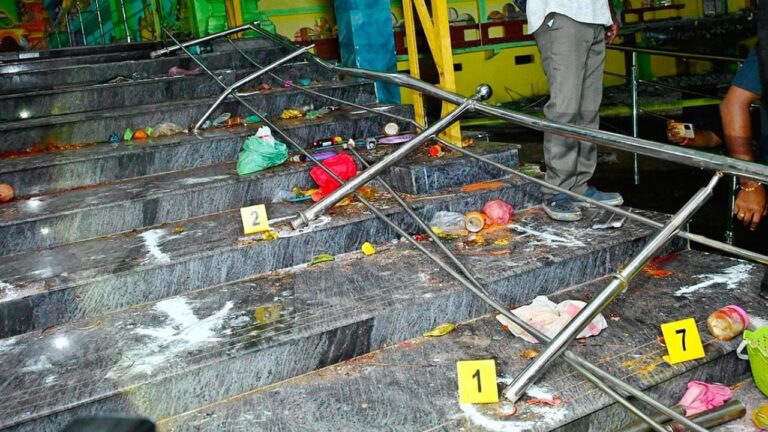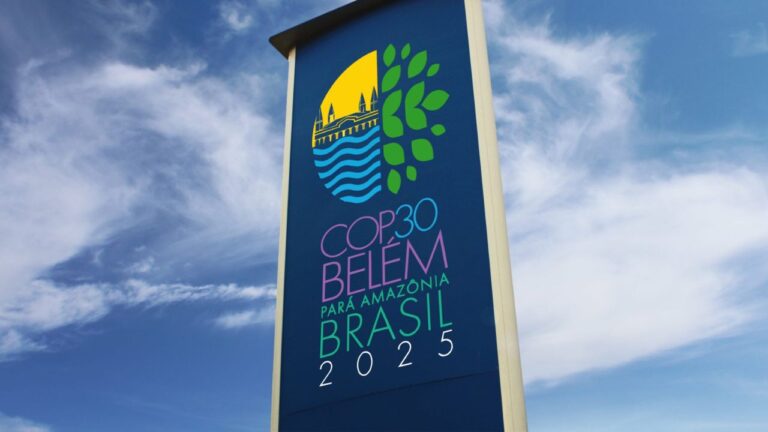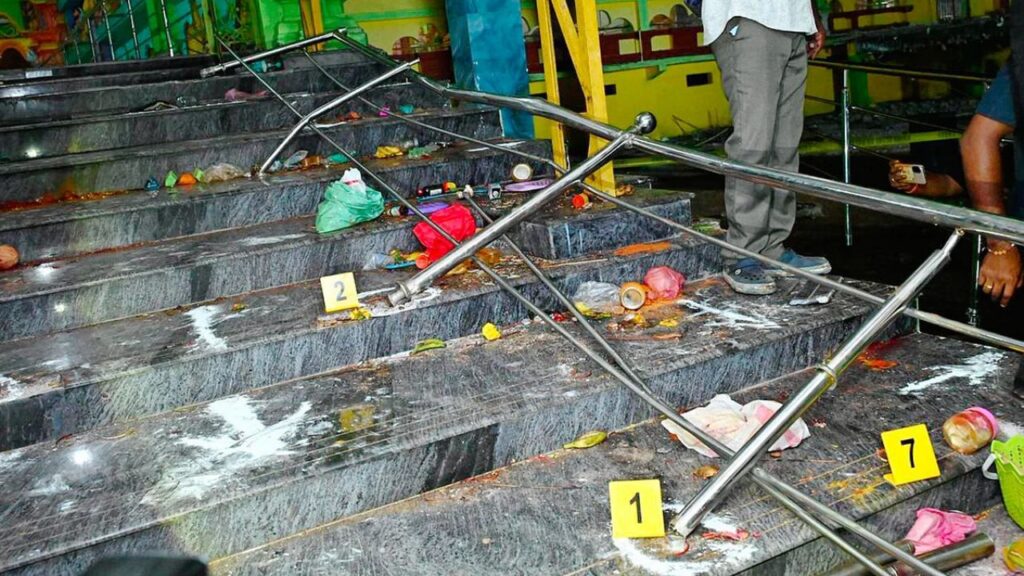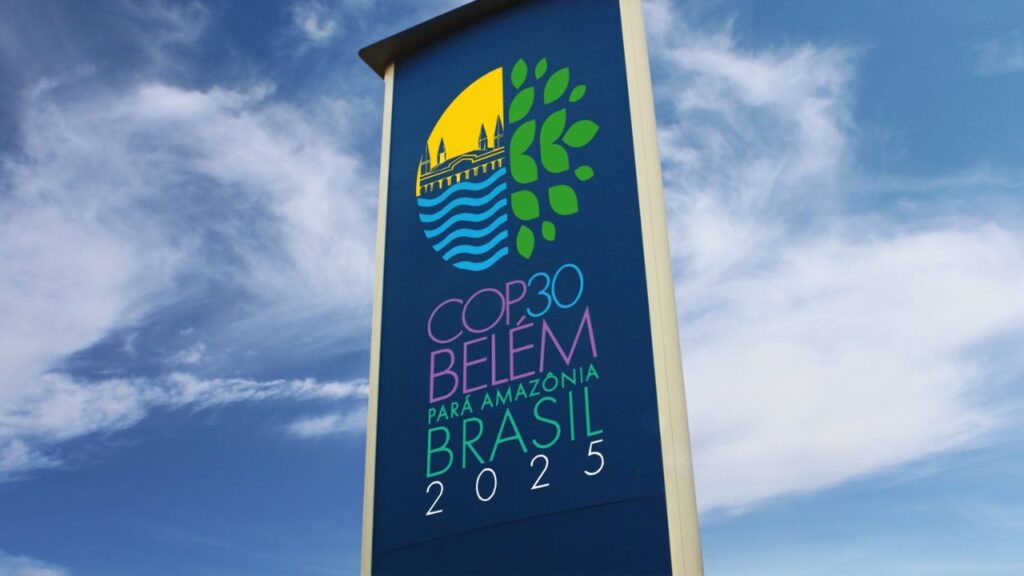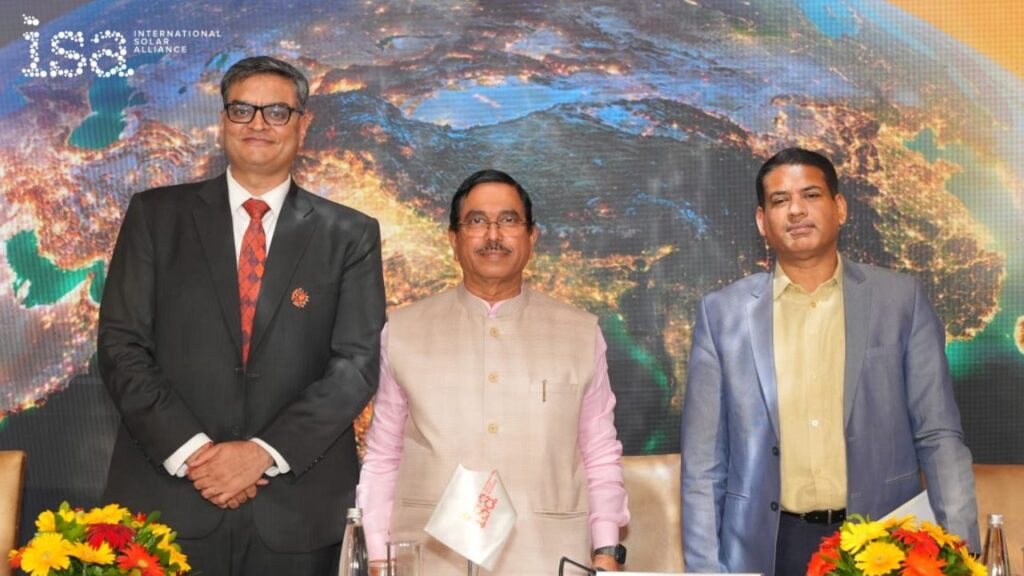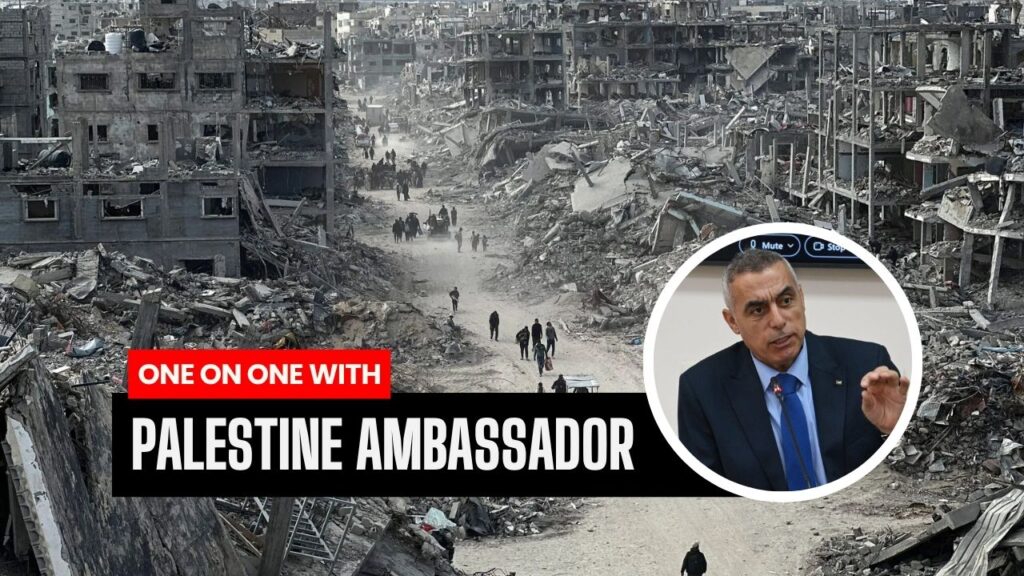Afghanistan’s Acting Foreign Minister Amir Khan Muttaqi, who is on a groundbreaking six-day visit to India, on Friday held a press conference at New Delhi, in which female journalists were not allowed to participate, sparking widespread criticism.
Female journalists, including senior correspondents of prominent news channels were barred from participating in the crucial presser, which was held after the minister met with External Affairs Minister S Jaishankar.

Image Courtesy: X/Sidhant Sibal
The move has been condemned by journalists as a reflection of the Taliban’s misogyny. The Taliban, the current ruling power in Afghanistan, is known for its misogynistic policies towards Afghan women, barring them from secondary schools, higher education and most workplaces.
The room brimmed with male journalists alone. No women. Not one. The air thickened with unspoken fury as security personnel, enforcing Taliban diktats on Indian soil, turned away seasoned female reporters who had arrived in professional attire, credentials in hand. This wasn’t Kabul’s brutal edicts spilling over borders; it was a deliberate import of oppression, sanctioned in the heart of a nation that prides itself on gender parity.
The exclusion wasn’t accidental. Sources revealed Taliban handlers dictated the guest list, vetoing women with the cold precision of their regime’s decrees—bans on girls’ education beyond primary school, curbs on female employment, and veils of silence over public life. Muttaqi, unrepentant, deflected queries on Afghan women’s plight with platitudes: “Every country has its own customs, laws, and principles.” But in Delhi, those “customs” clashed violently with India’s democratic ethos, igniting a firestorm of condemnation. The irony stung: hours earlier, Jaishankar hailed “closer cooperation” for regional stability, announcing India’s embassy reopening in Kabul—yet omitted any rebuke of the Taliban’s gender atrocities.
Outrage erupted like a monsoon torrent on social media, led by India’s vanguard of women journalists. Suhasini Haidar, Diplomatic Affairs Editor at The Hindu, posted on X: “What is even more ridiculous is that the Taliban FM is allowed to bring their abhorrent and illegal discrimination against women to India, as the government hosts the Taliban delegation with full official protocol. This isn’t pragmatism, this is supplication.” Her words, a scalpel to diplomatic hypocrisy, amplified calls for accountability.
Smita Sharma, senior journalist, wrote on X: “No Woman Journalist invited to the news conference by Muttaqi. No reference to the horrible plight of Afghan girls and women under Taliban regime in opening remarks of EAM Jaishankar or the joint statement… Muttaqi getting the red carpet welcome in a country where we take pride in women achievers… because of our security concerns. World politics today.”
Geeta Mohan of India Today fired a succinct broadside: “Women journalists were not invited to the press conference of Afghan Taliban Foreign Minister Amir Khan Muttaqi. Unacceptable.” Her stark verdict echoed the betrayal felt by peers denied entry, their microphones silenced by borrowed bigotry.
Sakshi Joshi, digital news editor and filmmaker, decried the spectacle with visceral disdain: “Absolutely… what a shame. This picture shall live as a testament to bending backwards even before the Taliban by not allowing women journalists.”
Barkha Dutt, the trailblazing war correspondent whose voice has pierced conflict zones from Kargil to global forums, weighed in saying, “Women journalists were evidently not called for the Taliban press conference today – while shared values diplomacy may be a thing for the textbooks and not for realpolitik- surely the male reporters and colleagues present at an all male press conference could have questioned the Taliban on this. Personally also think they should have been nudged by government to hold the press brief outside of their embassy premises so that at least in India there should have been professional equal opportunity.”
Though the Ministry of External Affairs stonewalled queries, the backlash swelled—opposition voices like Congress’s Shama Mohamed questioned, “Who are they to dictate terms on our soil?”—demanding boycotts and walkouts.

Image Courtesy: X/Sidhant Sibal
This wasn’t mere diplomacy; it was a seismic rupture. Muttaqi’s visit, the highest Taliban outreach since 2021, signals India’s pragmatic pivot amid Pakistan’s sway and China’s shadow—yet at what cost? As UN alarms blare over Afghanistan’s “systematic oppression” of women, Delhi’s silence risks staining its feminist credentials. The barred journalists, undeterred, vow to amplify silenced Afghan women. In a world of shifting alliances, this exclusion stands as a stark warning: pragmatism without principle is but surrender.


